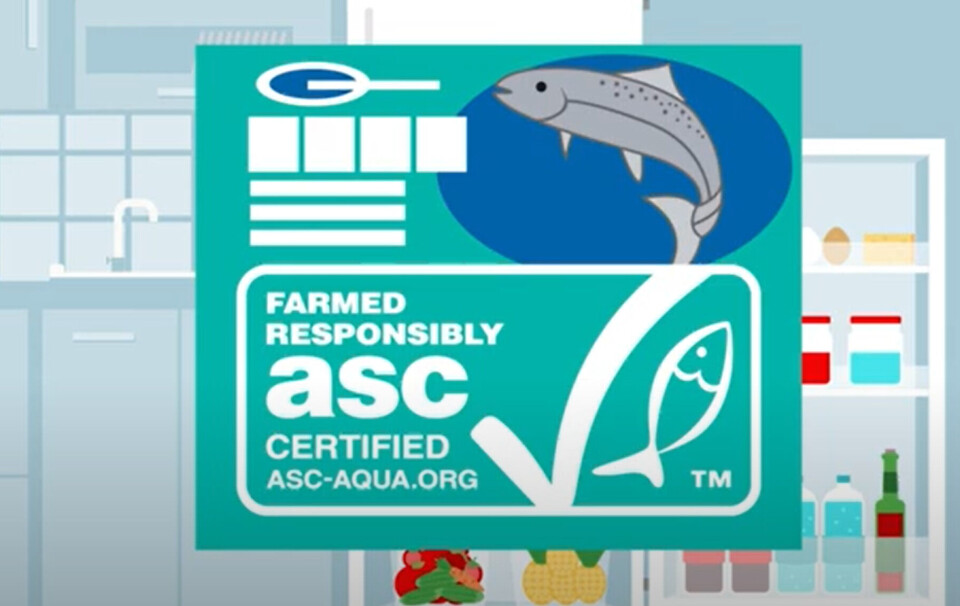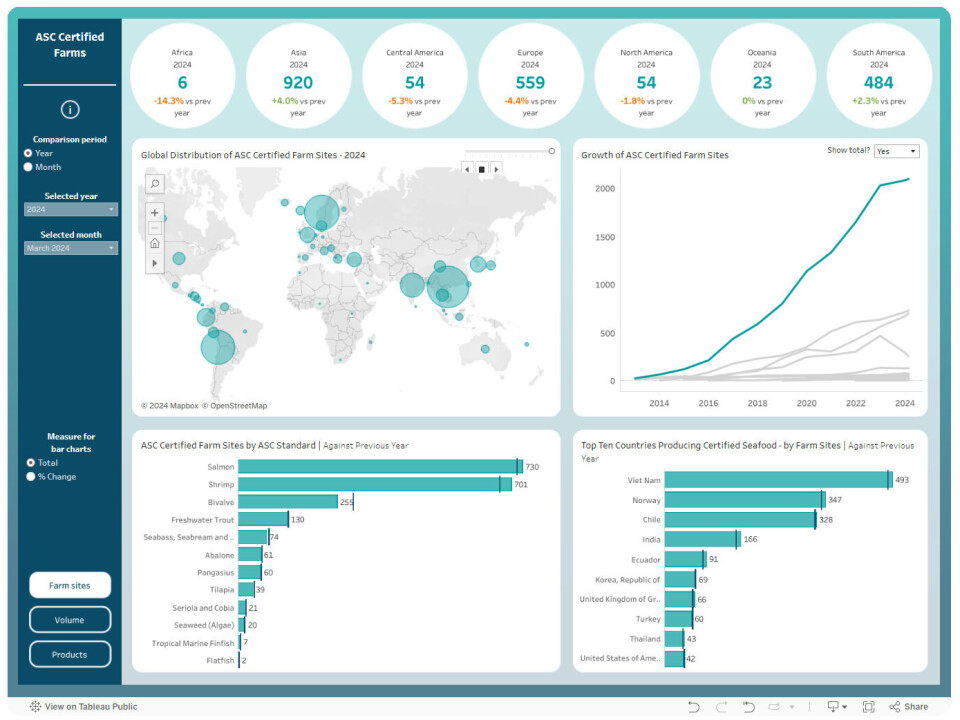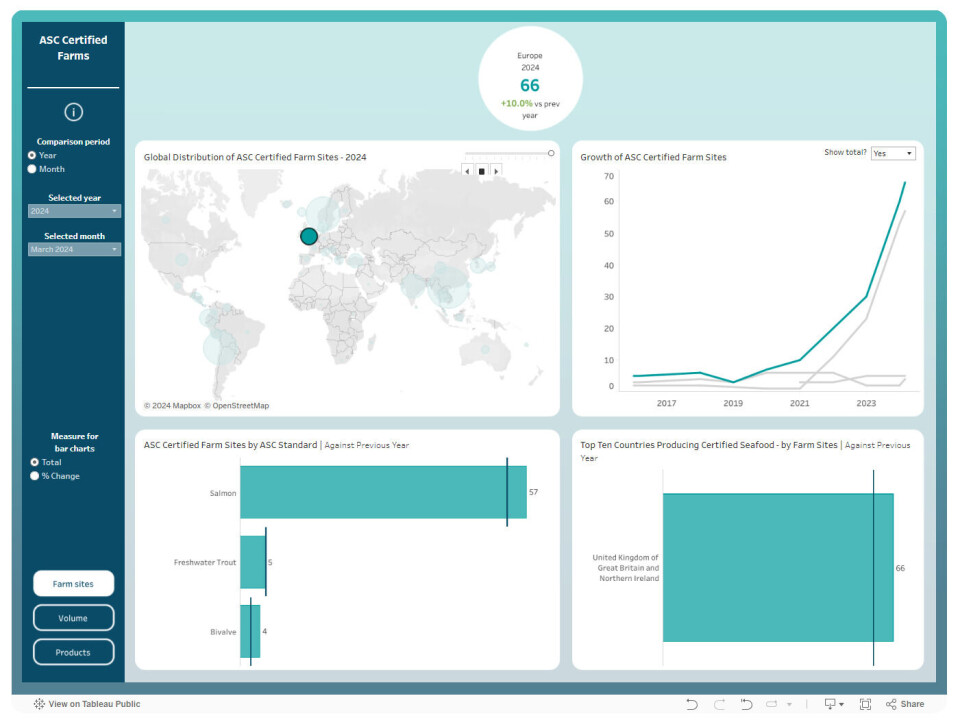
New graphics package helps ASC present a clearer picture of aquaculture
Data company provides free help to upgrade certification body's online dashboard
Fish farming certification organisation, the Aquaculture Stewardship Council (ASC), has launched a redesigned Impact Dashboard that uses the latest data visualisation techniques to make it easier for users to view and collect information on ASC’s impact.
“Visualising data and allowing users to filter to geographies and years of interest and export chart images can help businesses, producers, and retailers make informed business decisions,” said Jill Swasey, the ASC’s director of impacts, monitoring and evaluation.


“Using this powerful tool, stakeholders can easily compare ASC certified production volumes, farm sites and labelled products year-on-year and view trends. With just a simple click on the map, users can also explore the number of ASC certified farms in a country, the species being farmed on site and its growth compared to previous months or years.
Transparency
“For example, zooming in on Vietnam, users can see that the number of ASC certified farms has been steadily growing since 2021, with shrimp as the main species produced.
“ASC is committed to transparency in everything we do, and this fantastic new tool gives users a full view of ASC farmed seafood production and demonstrates the impact the organisation is making as we continue setting the standard for seafood.”
The redesign of the dashboard was completed in partnership with data specialist The Information Lab which provided its services free to ASC as part of its TIL+ initiative to help NGOs and non-profit companies.
Pro bono programme
Benedetta Tagliaferri, culture and inclusion lead at The Information Lab, said: “Our focus is to support NGOs that often lack the time and resources to scale up and develop their analytics capabilities.
“As a pro bono programme sponsored by The Information Lab, a tech consultancy company with high in-house tech skills, we utilise our consultants’ downtime between clients to practice and contribute to social progress. We reviewed ASC’s mission and felt that the organisation aligns with the type of NGOs we wish to support.”
An easier way
Dorinna Pentchev, a data consultant at The Information Lab, said: “We believe the end result provides an easy way for viewers to see how ASC’s global footprint has been growing over time, with the ability to focus on specific species and locations. This was made possible through a variety of visualisations, filters, and click actions.”
Swasey thanked TIL+ for its help with the project, which she said could not have happened without the company.
“We are delighted with the result, and I would invite stakeholders, partners and seafood lovers to dive into the new Impacts Dashboard to explore ASC’s growth and visualise our impact,” she concluded.























































